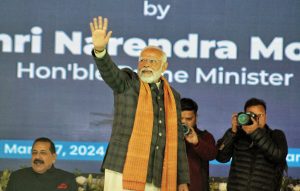On March 7, Prime Minister Narendra Modi made his first visit to Kashmir since the abrogation of Article 370 on August 5, 2019. He spoke to a huge rally held at Bakshi Stadium, attended by over 100,000 people.
Modi revealed various development projects valued at over 64 billion Indian rupees ($774 million) during the “Viksit Bharat Viksit Jammu Kashmir” event held at Srinagar.
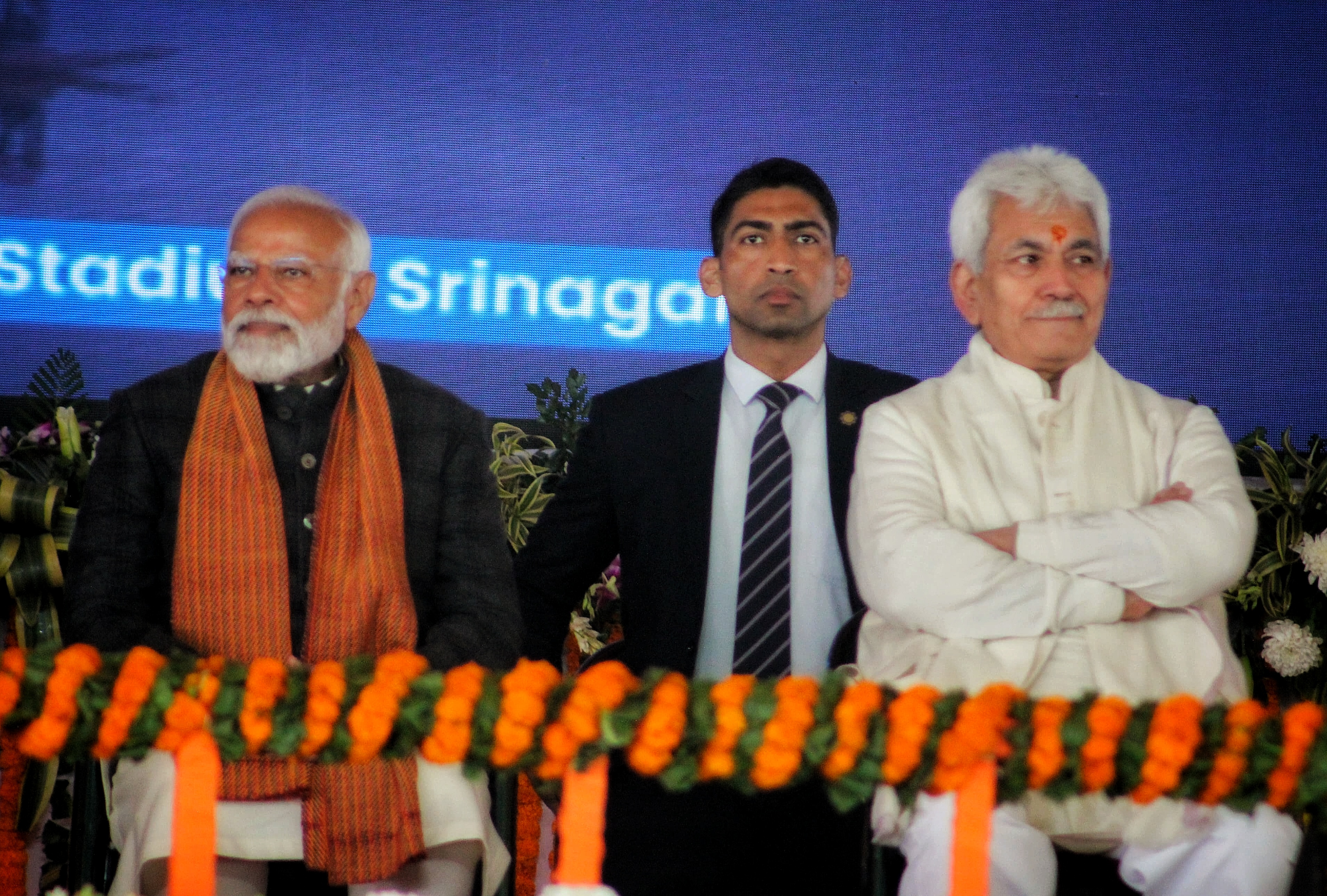
Prime Minister Narendra Modi with Jammu and Kashmir’s Lieutenant Governor Manoj Sinha. Photo by Mehroob Mushtaq.
The abrogation of Article 370 brought significant changes to Jammu and Kashmir’s governance and administrative structure. It led to the region’s reorganization into two separate union territories: Jammu and Kashmir, and Ladakh. This move was aimed at bringing the region closer to the rest of India and boosting development.
However, it also sparked concerns among some Kashmiris who felt it undermined their special status and identity. The decision was met with mixed reactions, with some welcoming it as a positive step toward development and others expressing apprehensions about its long-term impact on the region’s autonomy.
Similar concerns have been raised in Ladakh, which is now a separate union territory. Both Ladakh and Jammu and Kashmir are pushing for full statehood. Modi did not mention the prospect of restoring Jammu and Kashmir’s status as a state during his speech.
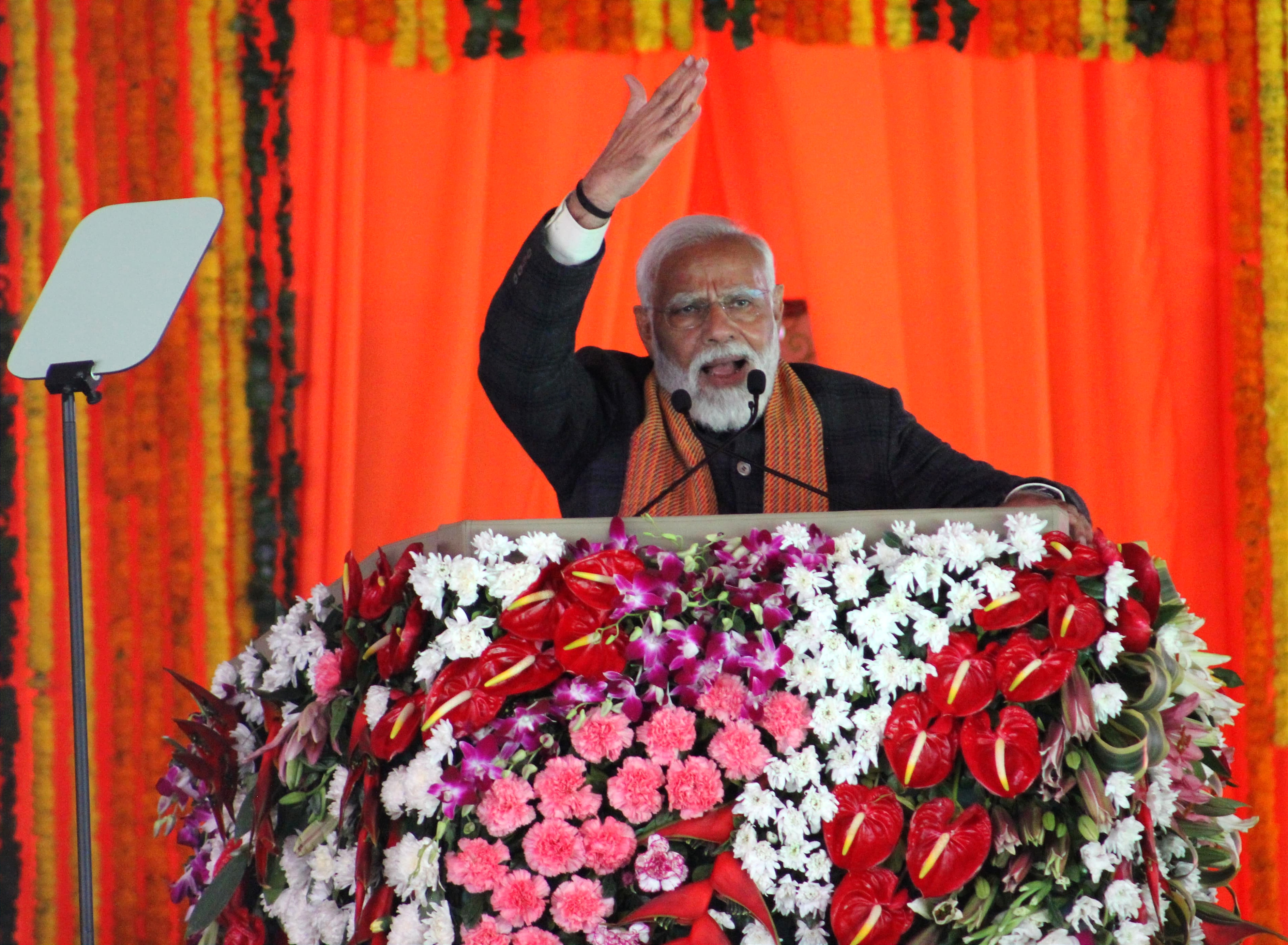
Prime Minister Modi revealed various development projects valued at over 64 billion rupees. Photo by Numan Bhat.
Instead, Modi stressed the importance of development and unity to connect with the people of Kashmir and assured locals of government support. “The development projects being dedicated today will enhance Jammu and Kashmir’s development,” he stated, adding, “A developed Jammu and Kashmir is a priority for a developed India.”
Modi pledged that in the future, Jammu and Kashmir’s “achievements will draw global attention.”
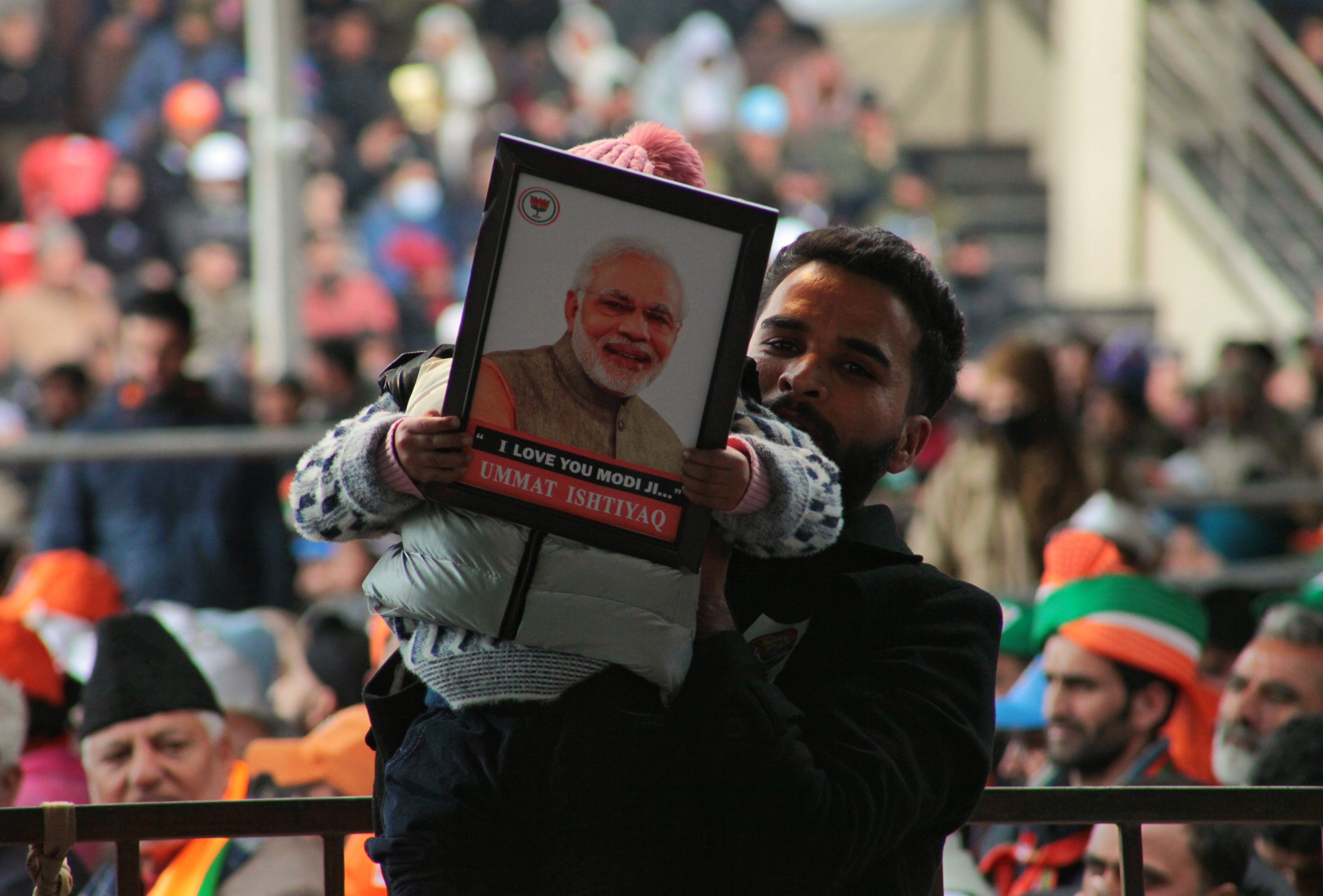
A little girl holds up a picture of Narendra Modi. Photo by Mehroob Mushtaq.
The prime minister also mentioned there was a time when people of Jammu and Kashmir did not receive the benefits they deserved. He highlighted the government’s efforts to change this situation and ensure that the people of Jammu and Kashmir will receive all the benefits and opportunities available to them. He sought to create the image of special connection between his Bharatiya Janata Party (BJP) and the region.
“Lotus flowers are abundant in the region’s lakes. Interestingly, the J&K’s Cricket Association, established 50 years ago, also featured a lotus in its logo. Whether it’s coincidence or a natural sign, the BJP’s symbol is also a lotus, reflecting the deep connection between Jammu & Kashmir and the lotus.” Modi added.
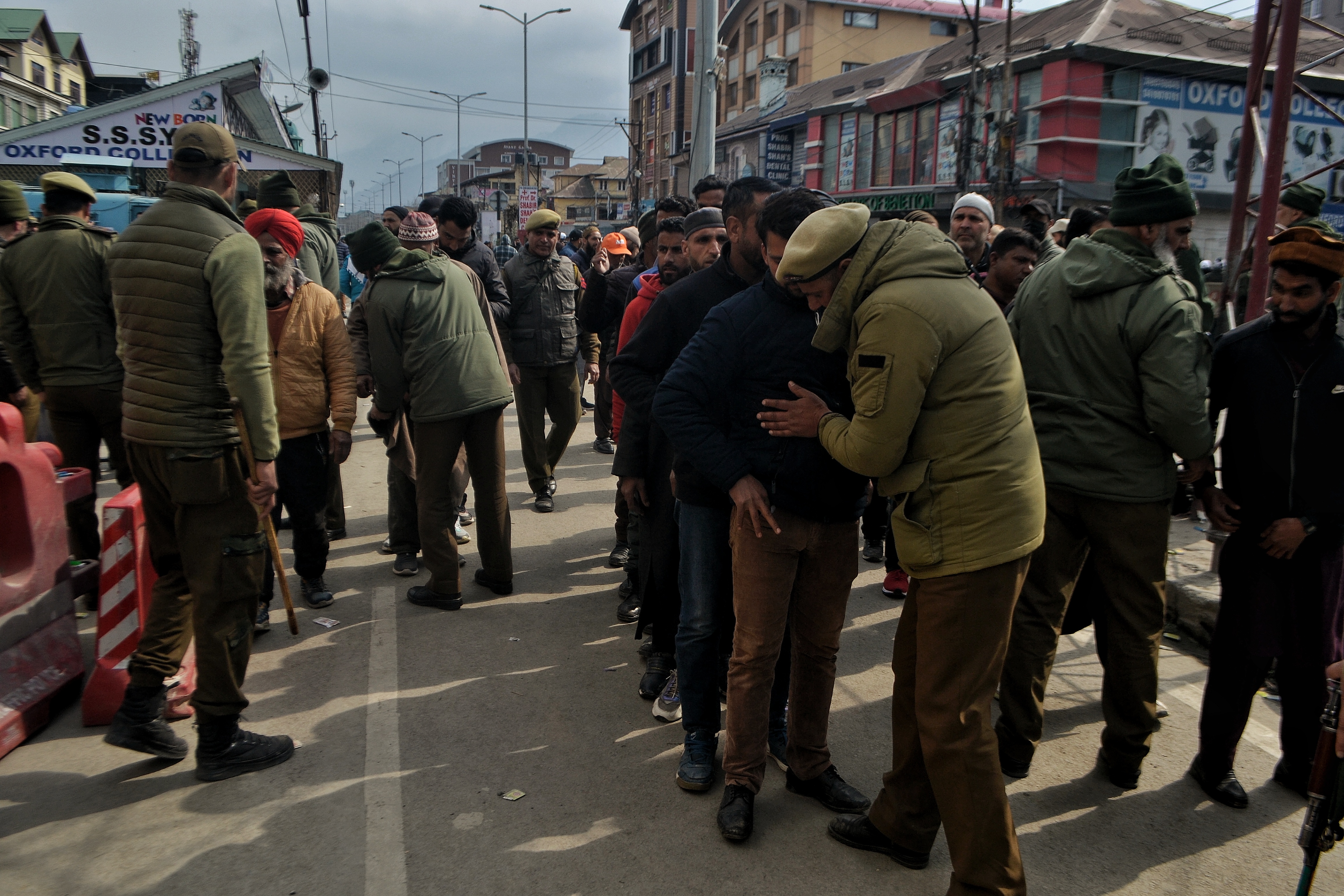
J&K police officers checked people before letting them go to the rally. Photo by Numan Bhat.
People from different parts of Kashmir journeyed to Bakshi Stadium in Srinagar to hear the prime minister speak. The crowd was diverse, including men and women of all ages, reflecting the widespread interest in the event and the desire for progress in Kashmir.
Some of the attendees shared their stories and aspirations for the future with The Diplomat. They expressed hope that Modi’s visit would bring positive changes to the region and improve their lives.
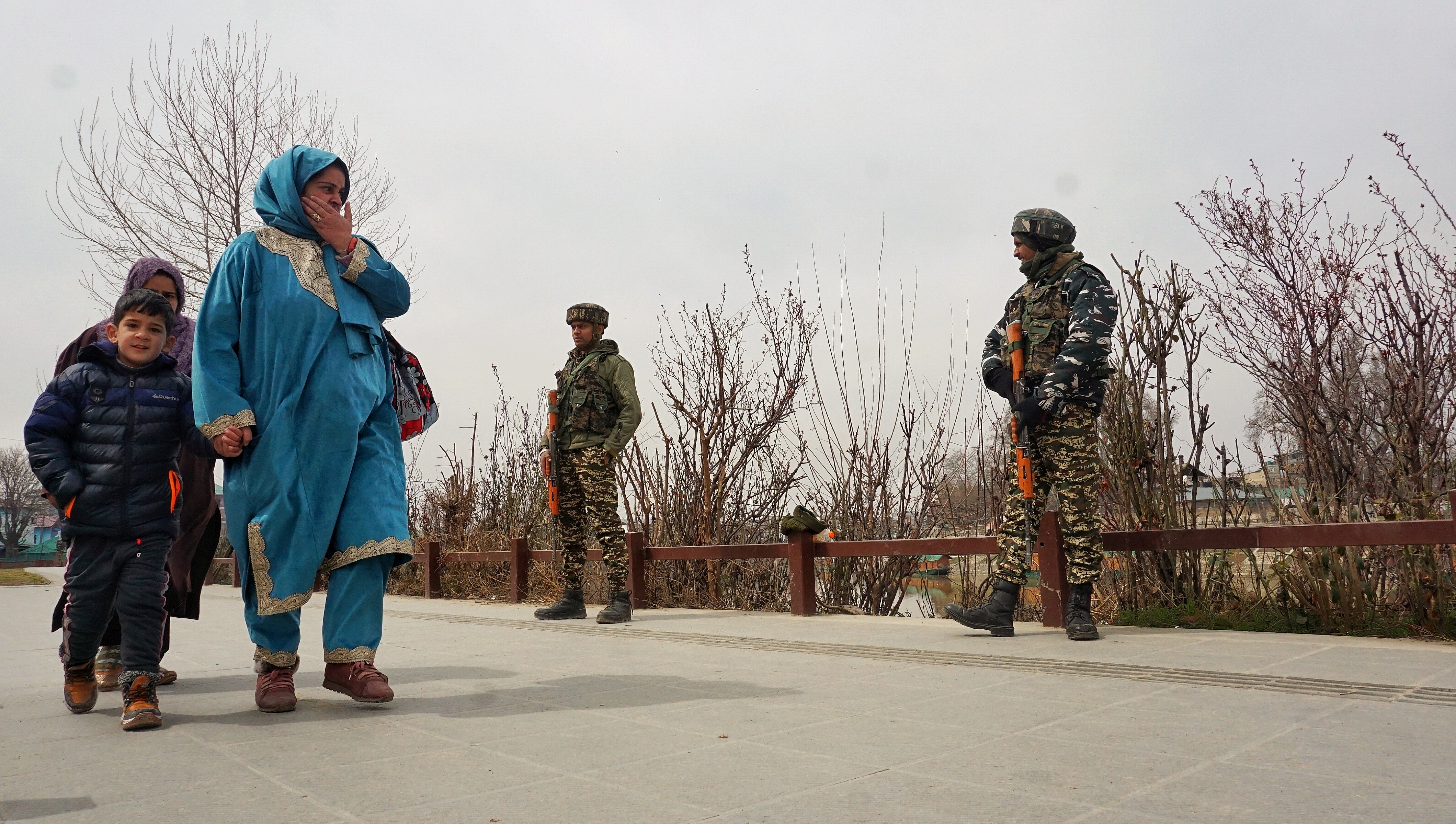
A woman walks with her son to attend the rally. Photo by Mehroob Mushtaq.
Khursheed Ahmad Khan, a 55-year-old from Srinagar, admires Modi and has been following him since 2019. He praised the changes in downtown Srinagar since 2019, noting increased peace and more youth focusing on education instead of conflict.
“I appreciated the government’s development efforts, which have surpassed expectations, especially schemes benefiting farmers,” Khan said. He highlighted the positive effect of these initiatives on agriculture, bringing benefits to farmers like himself.
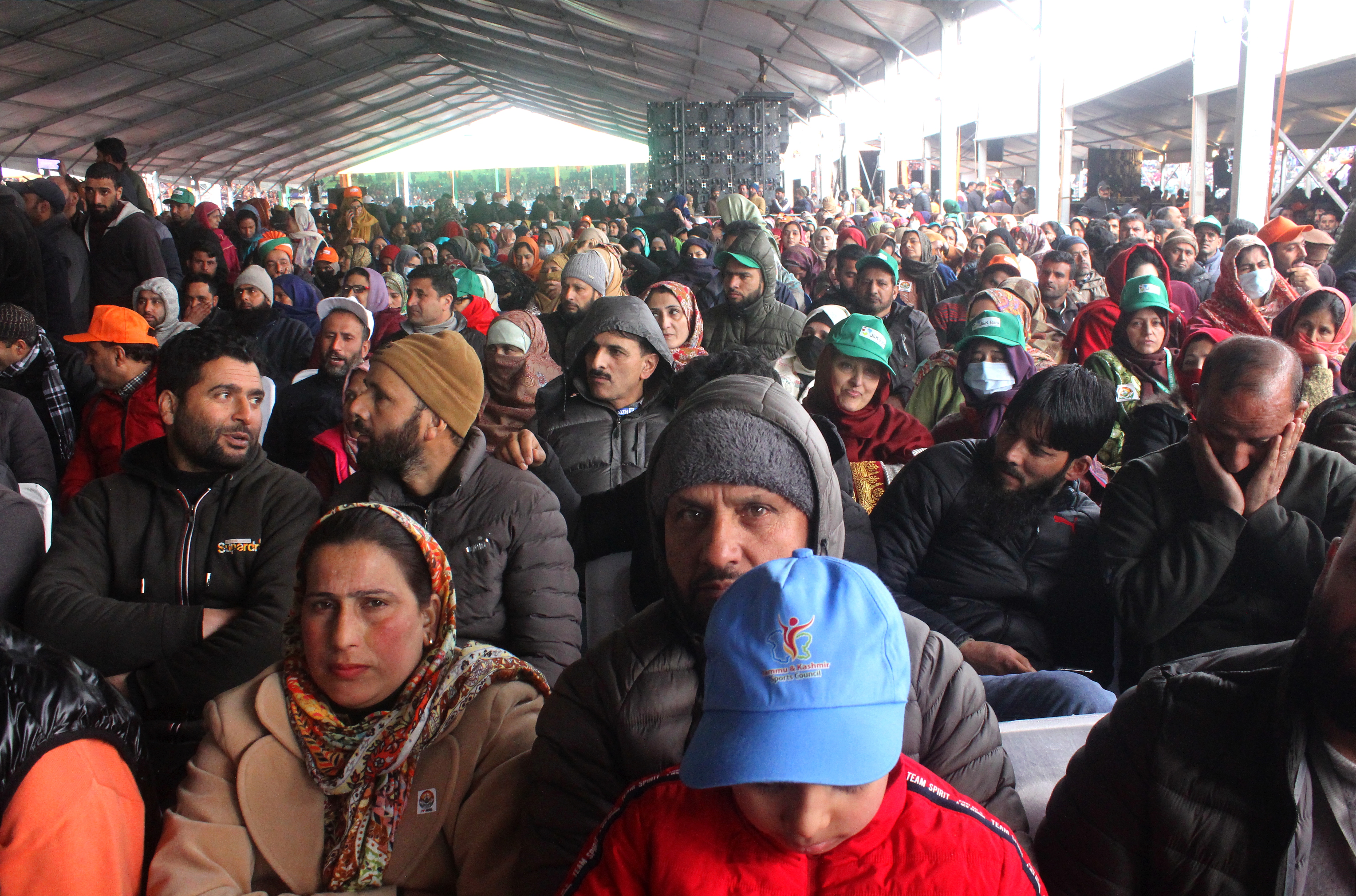
The rally was attended by more than 100,000 people. Photo by Mehroob Mushtaq.
Many people were seen wearing tricolor turbans and waving BJP flags, showcasing their support and enthusiasm for Modi’s visit to Srinagar. The vibrant display of colors and flags added to the festive atmosphere at Bakshi Stadium, where the prime minister addressed the crowd.
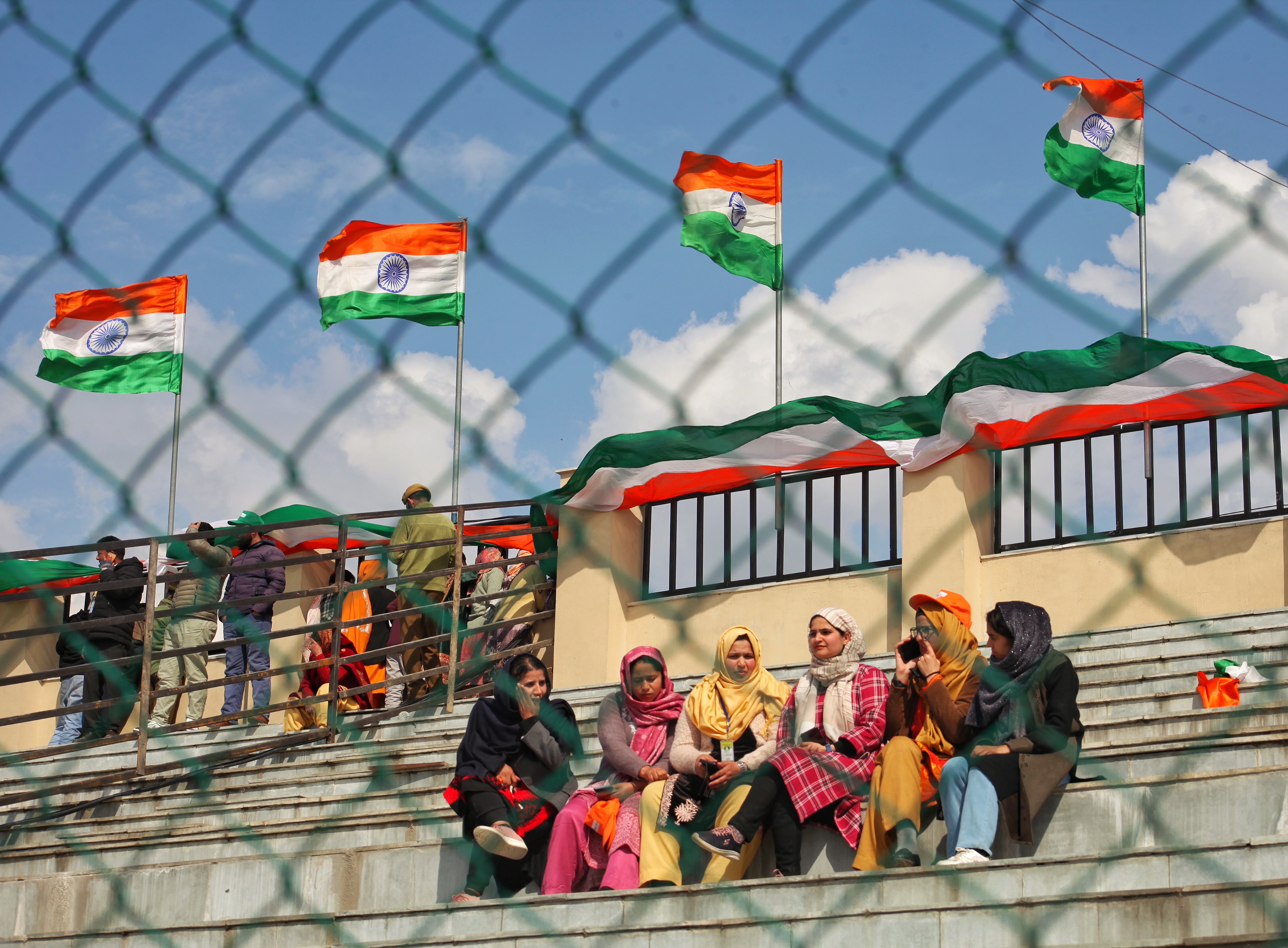
A group of girls waiting for Prime Minister Modi at Bakshi Stadium in Srinagar. Photo by Numan Bhat.
“Kashmir is now a peaceful region,” Darakhshan Andrabi, a member of the BJP’s National Executive, said. “After the removal of Article 370, Prime Minister Narendra Modi visited Kashmir for the first time. Local BJP members and local residents are welcoming him with happiness.”
She highlighted the fact that it has been 35 years since a prime minister visited Kashmir without any strikes or violence.
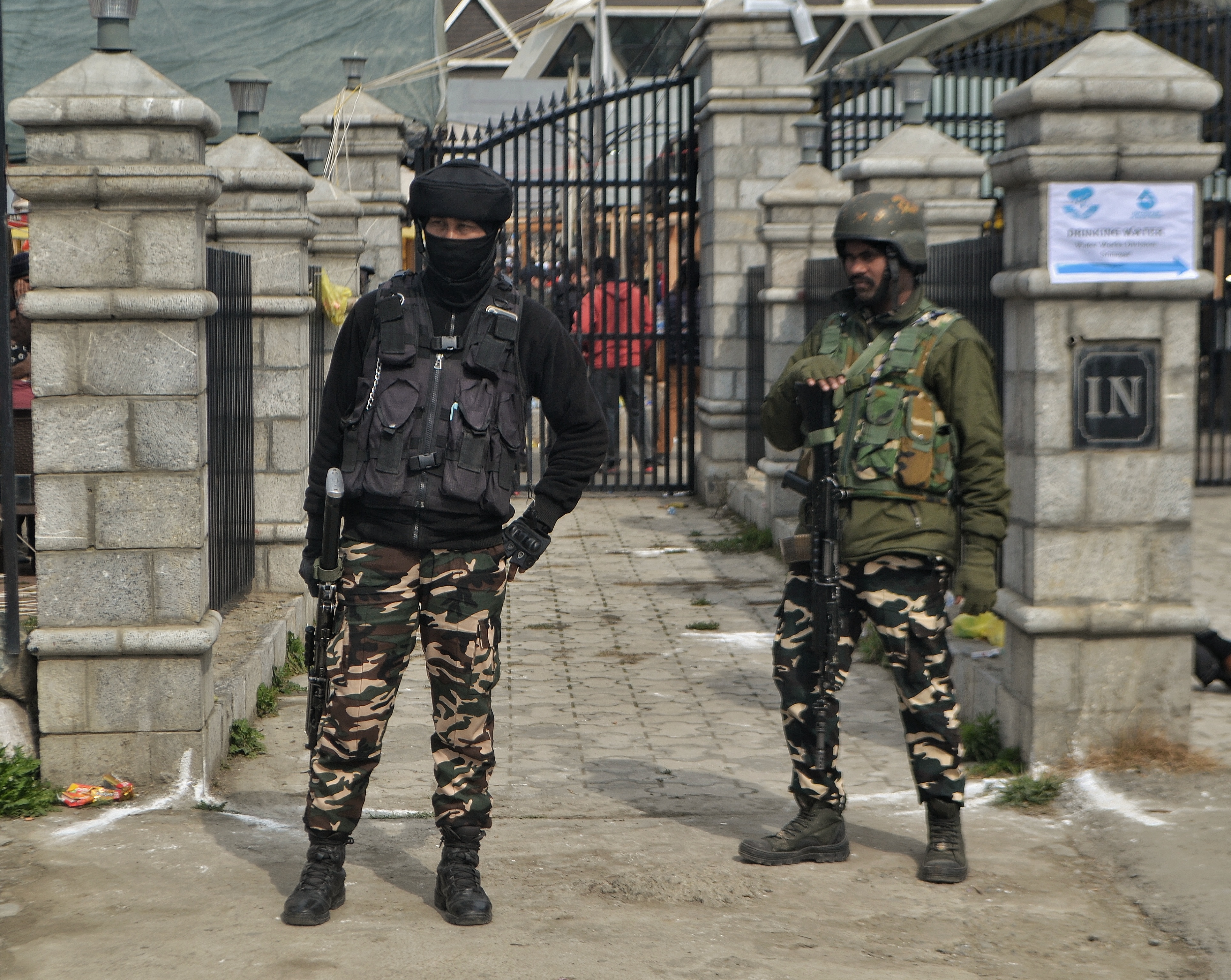
Security personnel keep vigil outside Bakshi Stadium. Photo by Numan Bhat.
To ensure safety, many armed police and paramilitary forces wearing protective gear were sent out, and new checkpoints were placed all over Srinagar. Security forces used barbed wires and patrolled the roads leading to the stadium, checking residents and vehicles at random. Navy commandos in boats patrolled the Jhelum River, which runs through the city.
In Srinagar, many schools close to the prime minister’s route were closed on Wednesday and Thursday. The authorities wanted to make sure that roads were clear and safe for his visit.
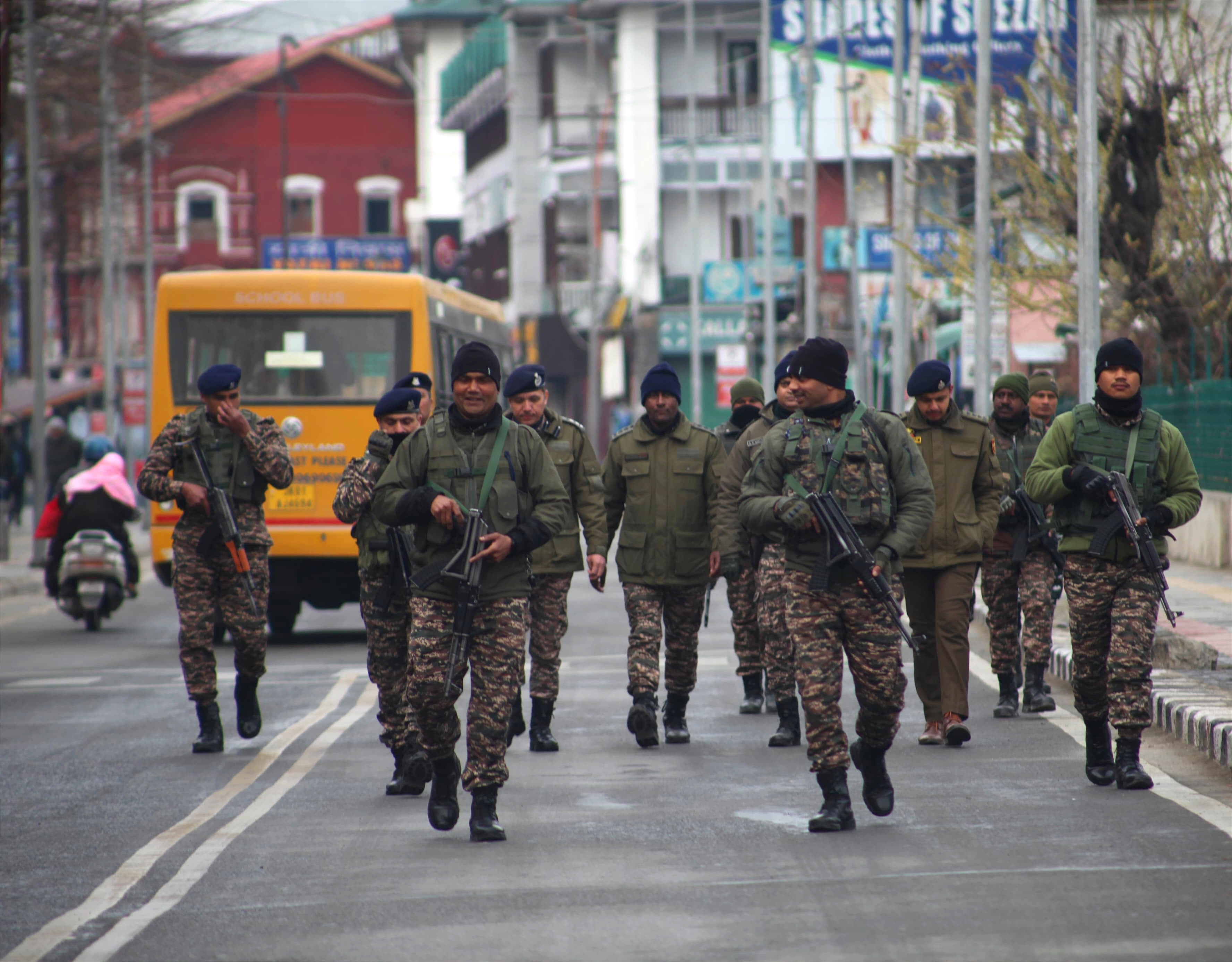
Tight security arrangements in Srinagar. Photo by Mehroob Mushtaq.
Mohammad Yousuf Dar, 72, expressed his disappointment at the tight security. “I came all the way from Kupwara district for the rally, but the police didn’t allow us to attend,” he complained. “I reached Srinagar around 7:00 a.m. and spent hours trying to find a way to reach Bakshi Stadium. There were around 2,000 people with me, but because of the restrictions, they had to go back home.”
He emphasized that everyone should have the chance to attend the rally, not just selected ones.













